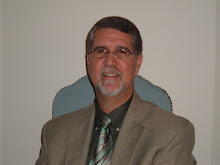When
it comes to preaching we know that Jesus was the greatest of all
preachers. He was definitely one that heralded God's message.
Another would be the apostle Paul.
Paul saw himself as Christ's herald. When he describes himself
as an appointed preacher of the gospel (2
Tim. 1:11),
the noun he uses means a herald, a person who makes public
announcements on someone elses behalf. When he declares "we
preach Christ crucified,"
the verb he uses denotes the herald's appointed activity of declaring
abroad what he has been told to make known. When Paul speaks of "my
preaching"
and "our
preaching"
and lays it down that after the world's wisdom had rendered the world
ignorant of God "it
pleased God through the folly of what we preach to save those who
believe,"
the noun he uses doesn't mean the activity of announcing, but the
thing announced, the proclamation itself, the message declared.
Paul, in his own estimation, was not a
philosopher, not a moralist, not one of the world's wise men, but
simply Christ's herald. His royal master had given him a message to
proclaim; his whole business was to deliver that message with exact
and studious faithfulness, adding nothing, altering nothing, and
omitting nothing. And he was to deliver it not as another of people's
bright ideas, needing to be beautified with the cosmetics and high
heels of fashionable learning in order to make people look at it, but
as a word from God spoken in Christ's name, carrying Christ's
authority and authenticated in the hearers by the convincing power of
Christ's Spirit (1 Cor. 2:1-5).
[James Packer, Your
Father Loves You,
Harold Shaw Publishers, 1986.]
Today we find a
lot of preachers preaching what people “want to hear,” not what
they “need to hear.” This reminds me of an episode in the life
of Theodore Epp, founder of Back to the Bible radio ministry. He
had been used to receiving critical mail from the sermons he
preached. One day he realized something was wrong when he stopped
receiving this type of mail. He was convicted that the was not
challenging the flock enough so he changed his preaching. He stated,
"I'm afraid that when I'm pleasing everybody, I'm not pleasing
the Lord," he later said, "and pleasing the Lord is what
counts." Every preacher needs to evaluate his messages to make
sure he is striving to please God, not man. This, in and of itself,
is a real challenge for any preacher, but something that must be done
in the course of his ministry. This is not to suggest that a
preacher is only successful when he is upsetting people! But he must
not be apologetic either when this occurs when preaching the truth of
God's word. A preacher must first and foremost be faithful to the
One he serves because he is fulfilling a divine commission through
his messages. Therefore, before a message is delivered, it should be
laid at the foot of God's throne with one question: "Is it
faithful to You, my Lord?"
There is a tale
told of that great English actor Macready. An eminent preacher once
said to him: "I wish you would explain to me something."
"Well, what is it? I don't know that I can explain anything to a
preacher." "What is the reason for the difference between
you and me? You are appearing before crowds night after night with
fiction, and the crowds come wherever you go. I am preaching the
essential and unchangeable truth, and I am not getting any crowd at
all." Macready's answer was this: "This is quite simple. I
can tell you the difference between us. I present my fiction as
though it were truth; you present your truth as though it were
fiction." [G.
Campbell Morgan, Preaching,
p. 36.]
What Macready
told the preacher could be very true of many preachers today. It can
be even true of the pew sitting Christian. If we believe the truth
of God's word but are not willing to live it, then we can see why we
are not filling the pews in our church building. Are we living a
fiction or non-fiction life when it comes to heralding the word of
God? Something to give credence to for sure!

